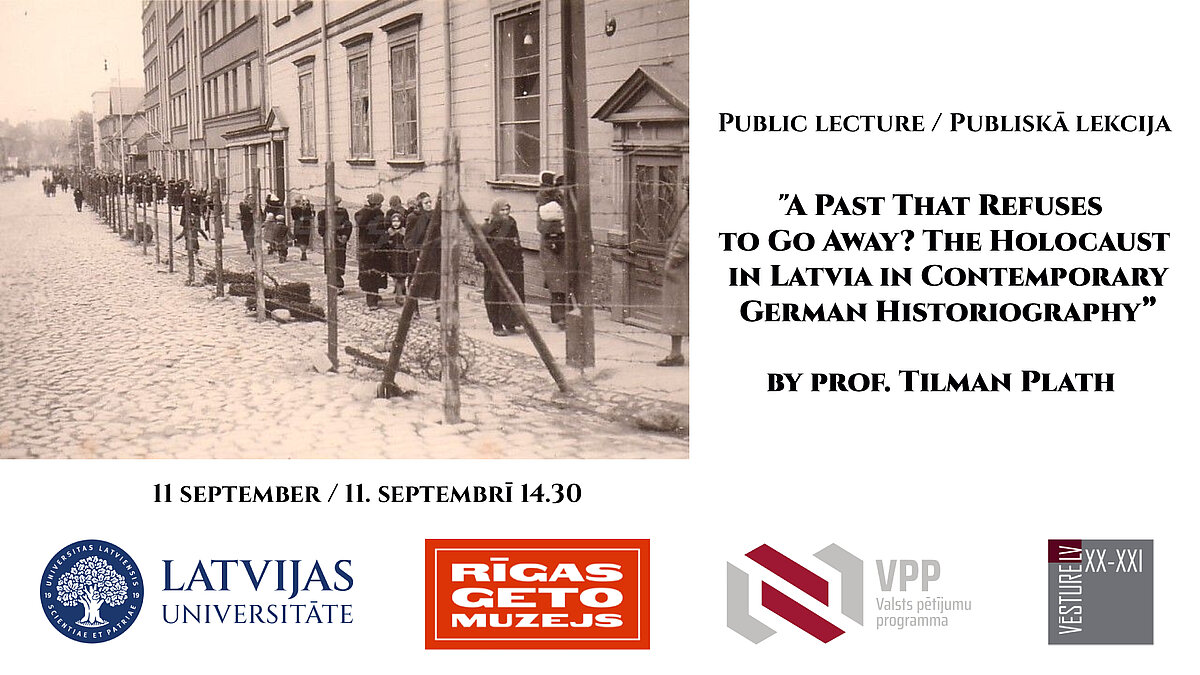
The lecture will examine German-language research on the Holocaust in Latvia within the framework of international historiography. Although for German researchers the extermination of Jews in Riga, including the deportation of German Jews to Latvia, is a topic of central importance, in Germany it has been understudied for years. It was only in 1991, when Latvian archives became accessible, that this research gained new impulse. Initially conducted within the context of historical disputes, including the question of the comparability of National Socialist and Communist crimes, it was directly linked to Latvia's experience of double occupation.
In the following years, Latvia was increasingly cited as an example in debates on intentionalism versus functionalism, as well as in studies on criminals. At the same time, with the enlargement of the European Union, interest in local perspectives and the culture of remembrance grew.
The lecture will also focus on Latvia's role in current discussions on the so-called "Historians' Dispute 2.0" (Historikerstreit 2.0), as well as issues concerning German and international Holocaust research in the context of global studies, national perspectives, and Russian historical policy.
The lecture and a subsequent exhibition tour (conducted in Latvian and English) will take place at the Riga Ghetto and Holocaust Museum at 14A Lastādijas Street, Riga.
To attend the lecture, please complete the registration form until September 9.
More information about Professor Tilman Plath.
The public lecture is part of the State Research Program project "Latvia's 20th-21st Century History: Social Morphogenesis, Heritage and Challenges" (project no. VPP-IZM-Vēsture-2023/1-0003) and is included in the international lecture series "New Perspectives in History."

 CONFERENCE
CONFERENCE